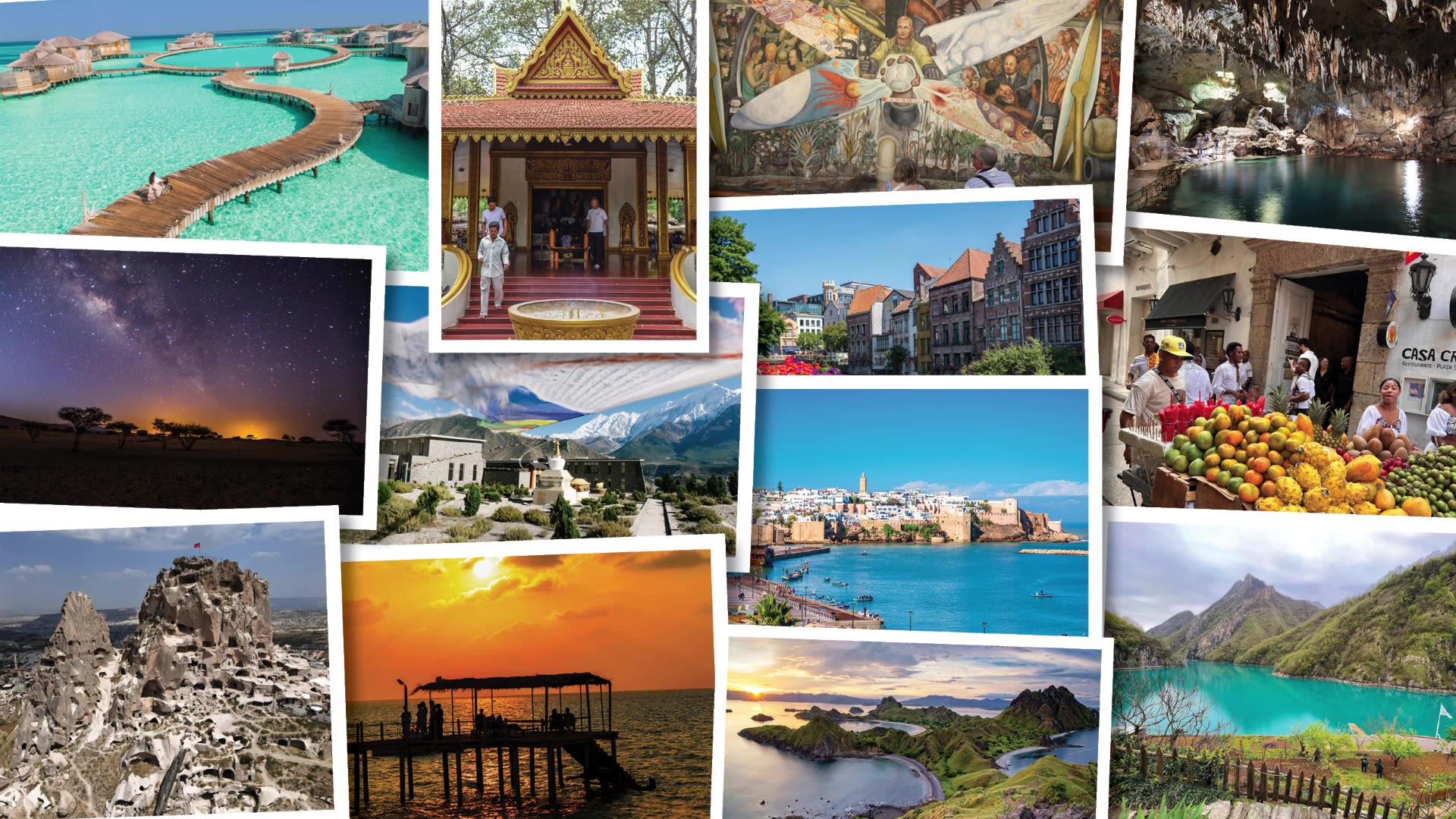As the world embraces sustainable travel, 2025 offers a plethora of eco-tourism destinations that prioritize conservation, community engagement, and immersive natural experiences. From lush rainforests to pristine beaches, here are some of the top eco-friendly destinations to consider this year.
1. Costa Rica – A Green Paradise
Costa Rica continues to be a leader in sustainable tourism. Boasting diverse ecosystems, from rainforests to beaches, the country has implemented innovative conservation and sustainability practices to preserve its natural resources.
Highlights:
- Monteverde Cloud Forest Reserve: A haven for biodiversity and birdwatching enthusiasts.
- Tortuguero National Park: A vital nesting site for sea turtles, accessible only by boat or plane.
- Eco-lodges: Accommodations that blend seamlessly with nature and support local communities.
2. Norway – Fjords and Sustainability
Norway’s commitment to environmental preservation is evident in its sustainable tourism practices. The country offers a range of eco-friendly activities amidst its stunning landscapes.
Highlights:
- Lofoten Islands: Experience traditional fishing villages and dramatic mountain scenery.
- Svalbard: An Arctic archipelago offering polar bear sightings and glacier hikes.
- Eco-friendly accommodations: Stay in lodges powered by renewable energy.
3. Rwanda – Gorilla Trekking and Conservation
Rwanda has emerged as a model for conservation-focused tourism. The country’s efforts in protecting endangered species have made it a top destination for eco-tourists.
Highlights:
- Volcanoes National Park: Embark on guided treks to observe mountain gorillas in their natural habitat.
- Community-based tourism: Engage with local communities benefiting from tourism revenues.
- Sustainable lodges: Accommodations that minimize environmental impact.
4. Galápagos Islands, Ecuador – A Living Laboratory
The Galápagos Islands remain a top destination for eco-tourism, offering unique wildlife experiences and stringent conservation measures.
Highlights:
- Marine life: Snorkel with sea lions, marine iguanas, and a variety of fish species.
- Guided tours: Learn about the islands’ ecosystems from certified naturalists.
- Conservation efforts: Participate in programs aimed at preserving the islands’ unique biodiversity.
5. Bhutan – The Carbon-Negative Kingdom
Bhutan’s commitment to environmental preservation is unparalleled. The country has implemented policies that ensure sustainable tourism and conservation.
Highlights:
- Paro Taktsang (Tiger’s Nest Monastery): A sacred site perched on a cliffside, offering breathtaking views.
- Traditional culture: Experience Bhutanese festivals and customs that have remained unchanged for centuries.
- Sustainable tourism policies: Tourism is regulated to ensure minimal environmental impact.
6. Amazon Rainforest – Indigenous-Led Conservation
The Amazon Rainforest, while facing environmental threats, remains a critical area for conservation efforts. Indigenous-led ecotourism initiatives are helping protect this vital ecosystem.
Highlights:
- Community involvement: Support local communities through eco-tourism ventures.
- Guided tours: Explore the rainforest with Indigenous guides who share traditional knowledge.
- Wildlife spotting: Observe diverse species, including jaguars, monkeys, and exotic birds.
7. Tayrona National Natural Park, Colombia – Coastal Biodiversity
Tayrona National Natural Park offers a blend of tropical beaches and rich biodiversity, making it a prime eco-tourism destination.
Highlights:
- Diverse ecosystems: From coral reefs to dense jungles, the park showcases varied habitats.
- Cultural heritage: Visit ancient archaeological sites of the Tairona civilization.
- Eco-friendly accommodations: Stay in eco-lodges that integrate with the natural surroundings.
8. Radhanagar Beach, India – Blue Flag Certified
Located on Havelock Island in the Andaman and Nicobar Islands, Radhanagar Beach is recognized for its environmental sustainability.
Highlights:
- Pristine beaches: Enjoy clean, clear waters ideal for swimming and snorkeling.
- Conservation efforts: Participate in beach clean-up drives and awareness programs.
- Local culture: Engage with the indigenous tribes and learn about their traditions.
9. Adyar Eco Park, India – Urban Green Space
The Adyar Eco Park in Chennai has undergone significant revitalization, offering a green retreat within the city.
Highlights:
- Biodiversity: Explore diverse flora and fauna in a restored wetland ecosystem.
- Recreational activities: Enjoy walking trails, bird watching, and educational programs.
- Community involvement: Participate in workshops and conservation initiatives.
10. Dharoi Adventure Fest, India – Eco-Tourism and Adventure
Held annually at the Dharoi Dam in Gujarat, the Dharoi Adventure Fest promotes eco-tourism and adventure activities.
Highlights:
- Adventure sports: Engage in activities like kayaking, rock climbing, and zip-lining.
- Environmental awareness: Attend workshops on sustainable tourism and conservation.
- Cultural experiences: Experience local traditions and cuisines.
Conclusion
2025 presents a wealth of opportunities for travelers seeking eco-friendly destinations that prioritize sustainability and conservation. Whether you’re trekking through the rainforests of Costa Rica, observing wildlife in Rwanda, or relaxing on the beaches of India, these destinations offer enriching experiences that benefit both travelers and the planet.
Travel Tip
When planning your eco-tourism trip, consider the following:
- Support local communities: Choose accommodations and tours that benefit local residents.
- Minimize your carbon footprint: Opt for eco-friendly transportation options and accommodations.
- Respect local cultures and environments: Follow guidelines and regulations to preserve natural and cultural heritage.
By making mindful choices, you can enjoy a fulfilling travel experience while contributing to the preservation of our planet’s precious ecosystems.
